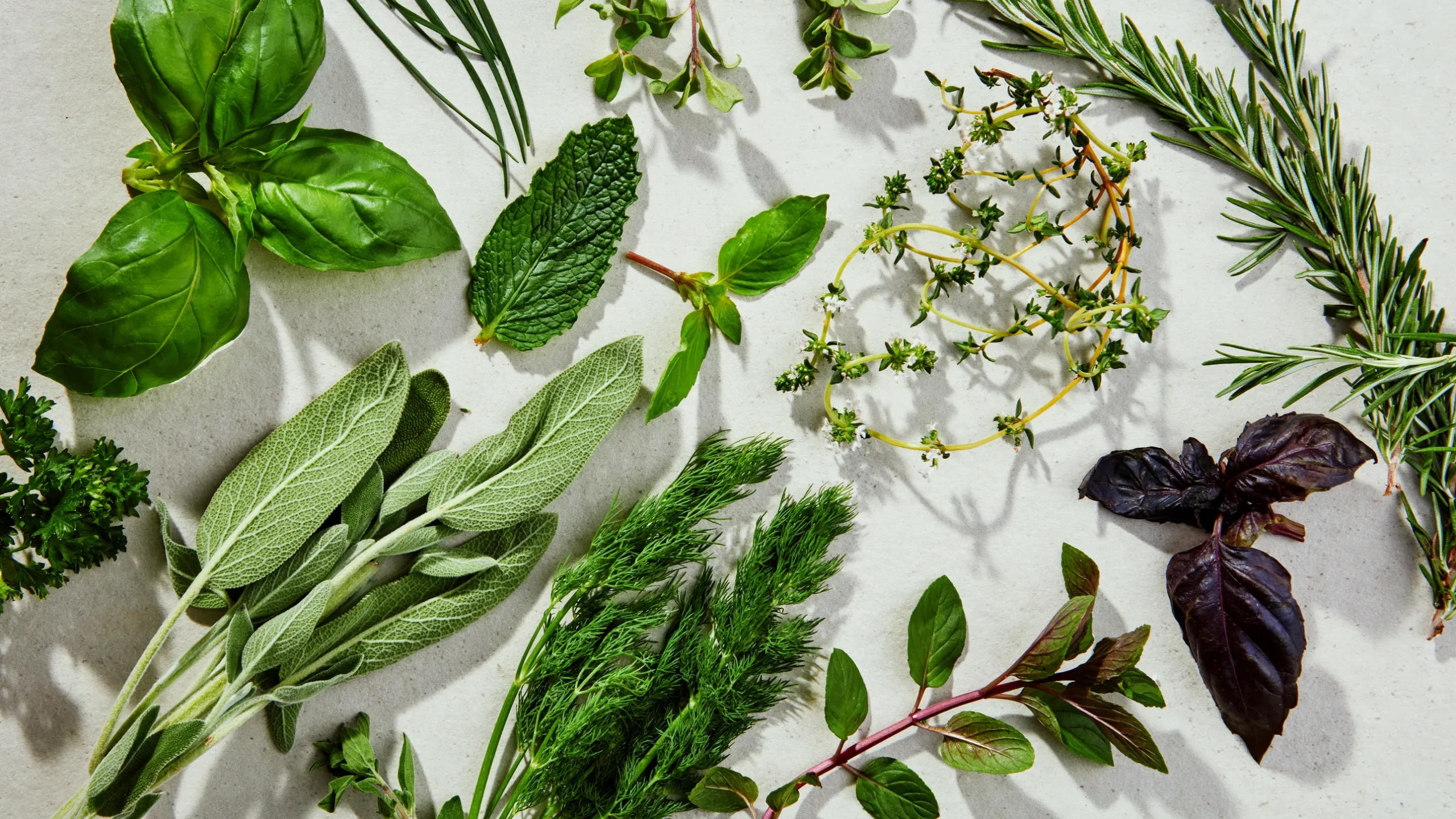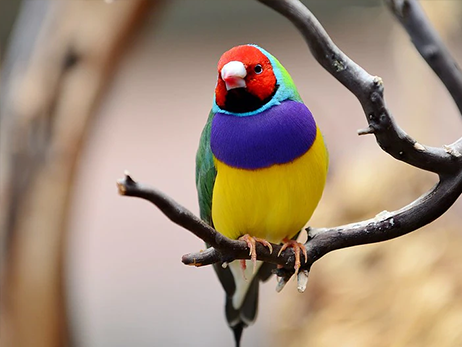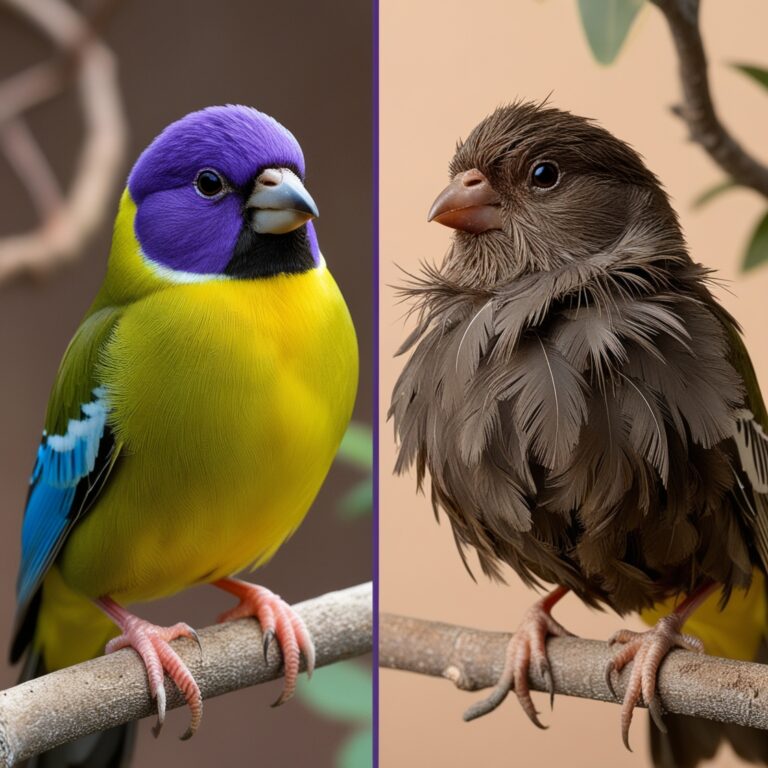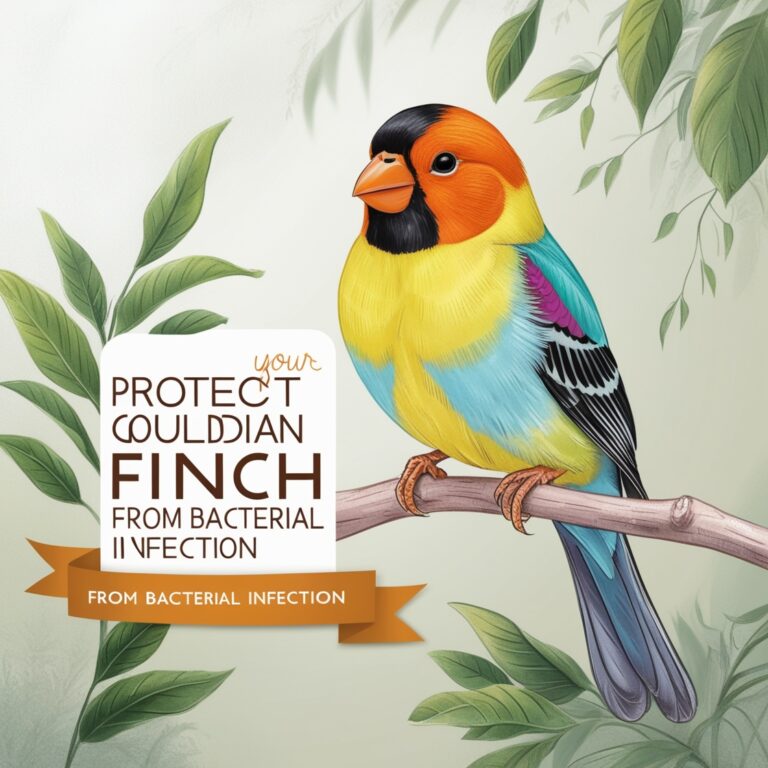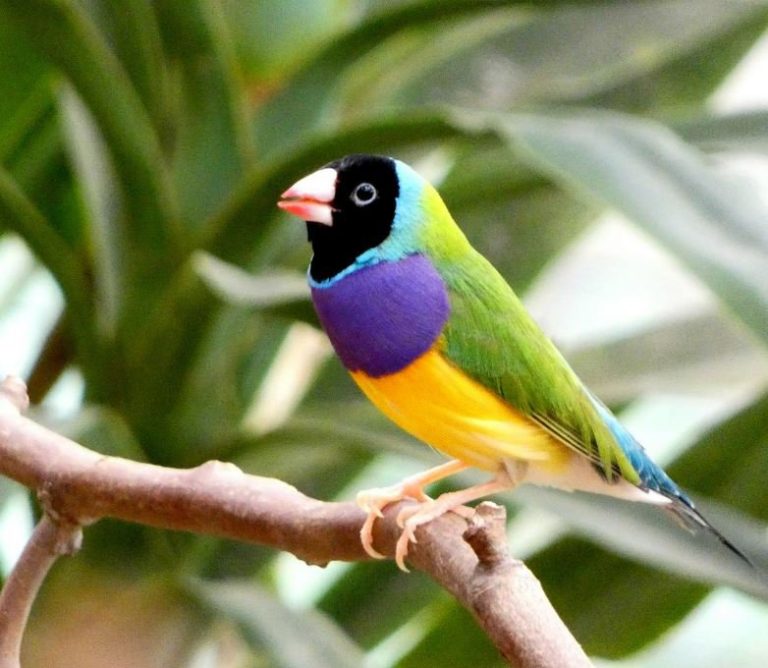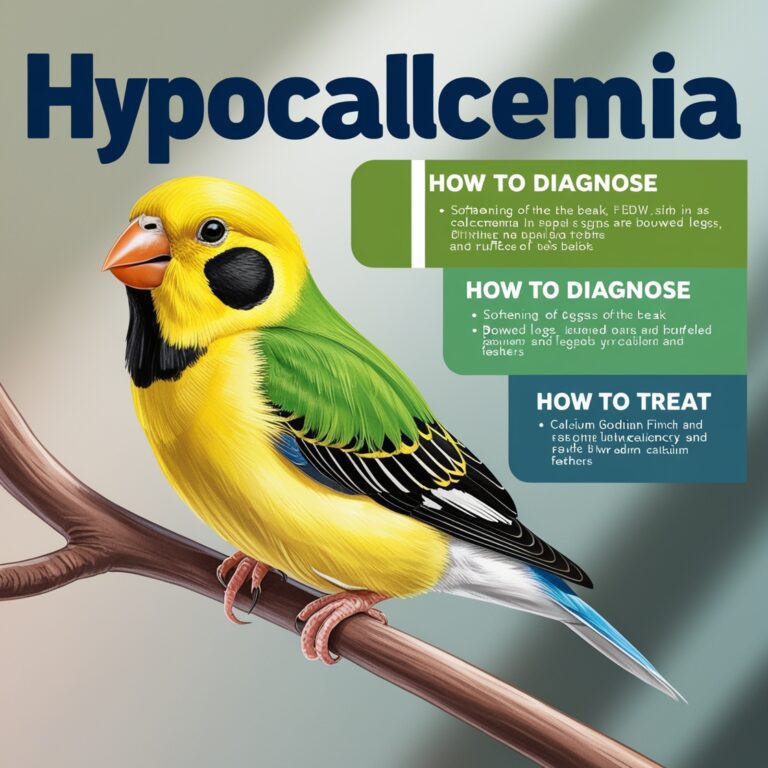Best Herbs for Gouldian Finches a Complete Guide
Introduction
Gouldian finch, with their vibrant plumage and delicate nature, are a delight to bird enthusiasts. Ensuring their well-being involves providing a balanced diet that meets all their nutritional needs. One way to enhance their diet is by incorporating herbs. This article explores the best herbs for Gouldian finches, highlighting their benefits and how to introduce them to your finch’s diet.
The Nutritional Needs of Gouldian Finches
Essential Vitamins and Minerals
Gouldian finches require a variety of vitamins and minerals to maintain their health. Vitamins A, D, and E, along with minerals like calcium and phosphorus, are crucial for their development, immune function, and overall vitality. These nutrients are primarily sourced from seeds, fruits, and vegetables.
Role of Herbs in a Finch’s Diet
Herbs can play a significant role in a finch’s diet by providing additional nutrients and medicinal properties. They can help boost the immune system, aid digestion, and offer calming effects, making them a valuable addition to your finch’s daily intake.
Top Herbs for Gouldian Finches
1- Basil
Basil is rich in vitamins A, C, and K, as well as essential minerals like iron and calcium. It has antioxidant properties that can help in reducing oxidative stress in finches. Basil can be given fresh or dried. Finches may enjoy nibbling on fresh basil leaves, which can be placed in their cage or mixed with their regular food.
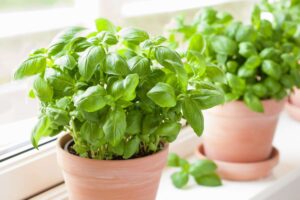
2- Dandelion
Dandelion leaves are packed with vitamins A, C, and K, and minerals like iron and calcium. They have diuretic properties that can help in detoxifying the body. Dandelion leaves should be washed thoroughly to remove any pesticides. They can be chopped and mixed with other foods or given as a standalone treat.
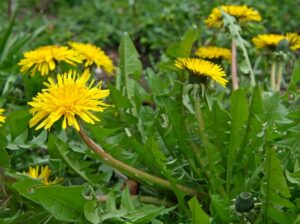
3- Oregano
Oregano is known for its antimicrobial and antifungal properties. It can help in preventing infections and boosting the immune system of Gouldian finches. Oregano can be added to the finch’s diet in dried form. A small pinch mixed with their regular seed mix can be beneficial.
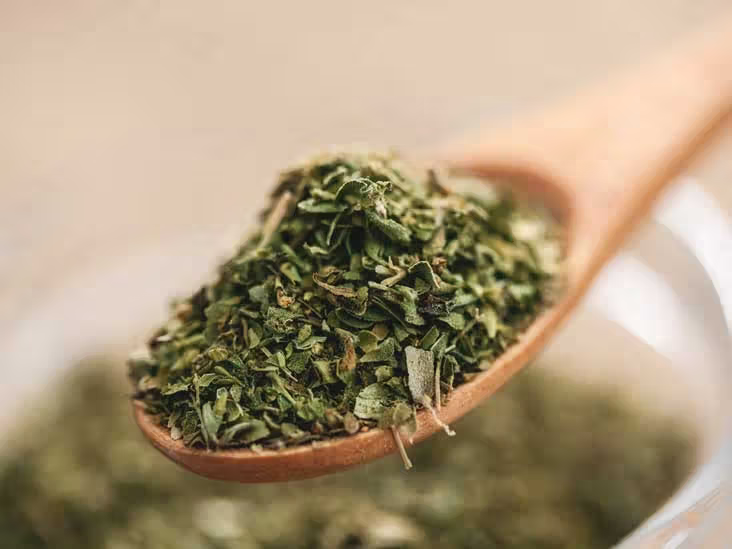
4- Thyme
Thyme is rich in vitamins and antioxidants, which can support the immune system and overall health of finches. Thyme can be given fresh or dried. Ensure that it is pesticide-free and introduce it gradually to avoid any digestive issues.
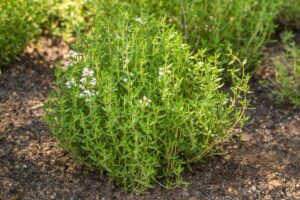
5- Chamomile
Chamomile is well-known for its calming properties. It can help in reducing stress and anxiety in finches, making it especially useful during molting or changes in the environment. Chamomile can be served as a tea by steeping the flowers in water and allowing it to cool. Alternatively, dried chamomile flowers can be sprinkled over food.
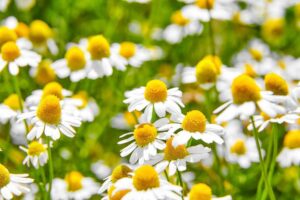
6- Parsley
Parsley is high in vitamins A, C, and K, and can support the overall health of Gouldian finches. It also contains folic acid and iron. Fresh parsley leaves can be offered as a treat. It’s best to chop them finely and mix them with other food items to encourage consumption.
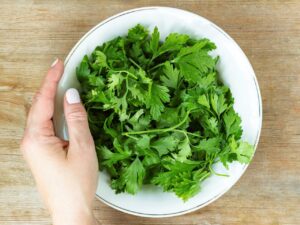
7- Peppermint
Peppermint can aid in digestion and help alleviate minor digestive issues in finches. It also has a pleasant aroma that finches may find appealing. Peppermint leaves can be given fresh or dried. A few leaves added to the cage or mixed with their regular diet can be beneficial.
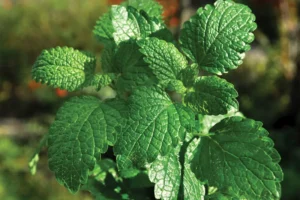
Other Herbs
| Astragalus | immune system stimulator, aids digestion, energy, kidneys |
| Barberry | C, antiseptic, respiratory, antibacterial, blood purifier, liver function |
| Chickweed | C, B6, B12, D, anti-inflammatory, anti-tumor, stomach, respiratory |
| Dandelion | liver, kidneys, stomach, vitamins, rich in potassium, iron, calcium |
| Echinacea | antibiotic, antiviral, strengthens immunity, vitamins & proteins |
| Elderberry | respiratory, anti-inflammatory, blood purifier, stimulates appetite |
| Garlic | antibacterial, antifungal, antioxidant, fertility, immune system, heart |
| Kelp | iodine, thyroid, stimulant, emollient, protects mucous membranes |
| Lavender | stimulant, digestion, essential oils, relieves stress, metabolism |
| Licorice | expectorant, liver detoxifier, anti-inflammatory, delicious flavor |
| Marshmallow | heals wounds, calcium, A, diuretic, demulcent, tonic |
| Milk thistle | liver repair, heart, lungs, circulation, expels intestinal worms |
| Oatstraw | rich in calcium, magnesium, yeast infections, antiseptic, thyroid |
| Olive leaf | chronic skin problems, allergies, improves the will to live in sick birds |
| Pau d’ arco | antibacterial, blood cleanser, fights infections, liver, candida |
| Plantain | kidneys, bladder, appetite, diarrhea, antibacterial, anti-inflammatory |
| Red clover | relaxant, antibiotic, inflammations, biotin, minerals, B’s, A, C |
| Spirulina | fertility, growth, immune system, stress reducer, color, protein |
| Thyme | antibacterial, kills and expels worms, fights diarrhea |
| Wheatgrass powder | circulation, amino acids, enzymes, chlorophyll. |
| Wormwood | liver, aids digestion, encourages appetite, kills & expels worms |
| Yarrow | blood purifier, liver function, virus & fungal inhibitor, tonic |
How to Introduce Herbs to Your Finch’s Diet
When introducing new herbs to your finch’s diet, it’s essential to do so gradually. Start with small amounts and observe how your finch reacts.
Keep an eye on your finch for any signs of allergies or digestive issues. If you notice any adverse reactions, discontinue the herb and consult a veterinarian.
While herbs are beneficial, they should not replace the primary diet of seeds and pellets. Balance is key to ensuring your finch receives all necessary nutrients.
Potential Risks and Precautions
Overfeeding herbs can lead to imbalances in the diet. Stick to recommended amounts and avoid giving large quantities at once.
Some finches may be allergic to certain herbs. Introduce one herb at a time and watch for any signs of allergic reactions, such as sneezing, itching, or changes in behavior.
Not all herbs are safe for finches. Avoid giving herbs like garlic, onion, and any herb that is known to be toxic to birds. Always research or consult a veterinarian before introducing a new herb.
Conclusion
Incorporating herbs into your Gouldian finch’s diet can offer numerous health benefits, from boosting the immune system to aiding digestion. By carefully selecting and introducing these herbs, you can enhance your finch’s overall well-being and happiness. Remember to monitor their response and maintain a balanced diet for the best results.
FAQs
Can all herbs be given to Gouldian finches?
No, not all herbs are safe for Gouldian finches. Some herbs can be toxic, so it’s important to research or consult a veterinarian before introducing a new herb to your finch’s diet.
How often should I feed herbs to my finch?
Herbs should be given in moderation, typically a few times a week. They should complement the primary diet of seeds and pellets, not replace it.
What are the signs that a finch likes or dislikes a certain herb?
Signs that a finch likes an herb include actively eating it, showing excitement when it’s offered, and displaying positive behavior. Dislikes may be indicated by ignoring the herb or showing signs of distress or discomfort.
Can herbs replace seeds in my finch’s diet?
No, herbs should not replace seeds in a finch’s diet. They are meant to be supplements that provide additional
